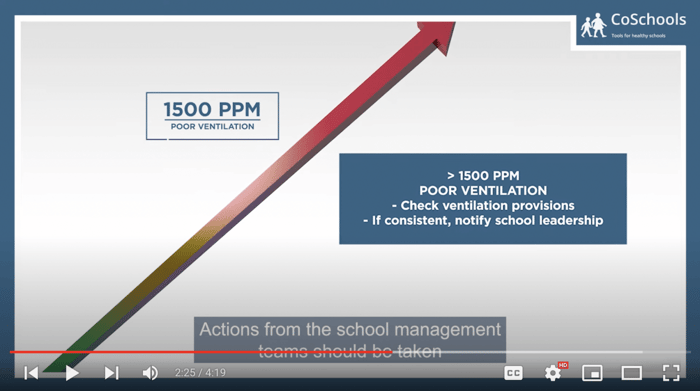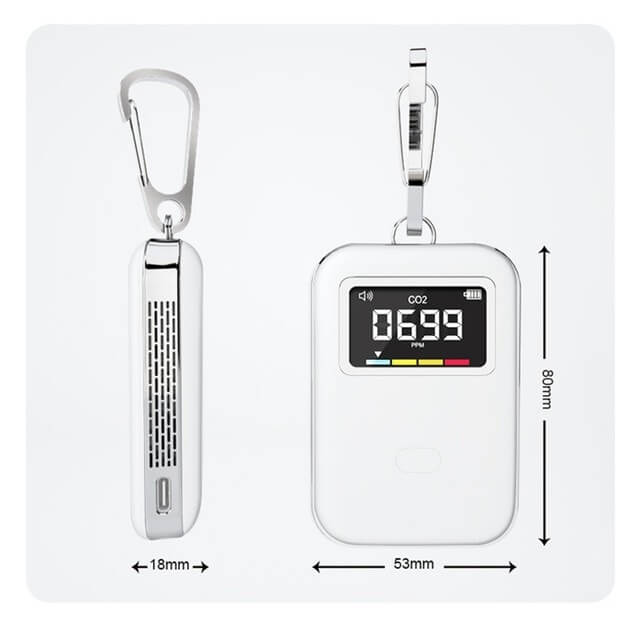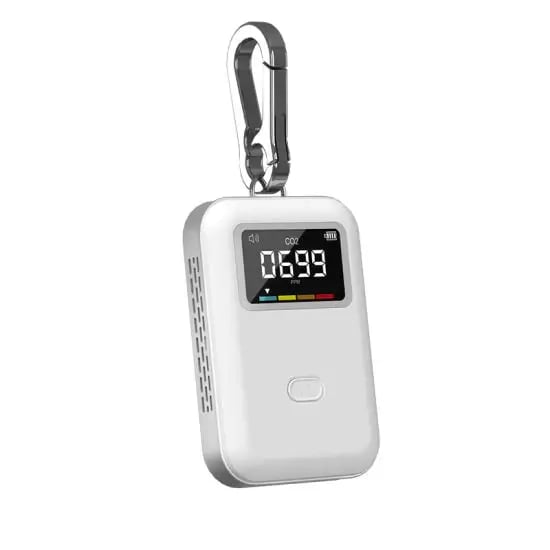
A practical guide to Carbon Dioxide monitors
A practical guide to Carbon Dioxide monitors:
Check out this great video highlighting how we can interact with CO2 monitors to manage ventilation.
If you'd like check out our mini CO2 monitors click on the image below:
How can we assess the freshness of indoor air?
One simple and effective tool for measuring indoor air quality is to assess the carbon dioxide (CO2 levels).
Outdoor air has a CO2 level of roughly 400 to 450parts per million (ppm).
Animals breath out CO2. Generally the more people in a relatively enclosed air space tge higher the CO2 level.
most jurisdictions accept up to a maximum of 800ppm for ‘safe’ indoor air.
At levels of 1500ppm our ability to concentrate decreases by 50%.
practidcal practical practical How can we assess the freshness of indoor air?
One simple and effective tool for measuring indoor air quality is to assess the carbon dioxide (CO2 levels).
Outdoor air has a CO2 level of roughly 400 to 450parts per million (ppm).
Animals breath out CO2. Generally the more people in a relatively enclosed air space tge higher the CO2 level.
most jurisdictions accept up to a maximum of 800ppm for ‘safe’ indoor air.
At levels of 1500ppm our ability to concentrate decreases by 50%.
How can we assess the freshness of indoor air?
One simple and effective tool for measuring indoor air quality is to assess the carbon dioxide (CO2 levels).
Outdoor air has a CO2 level of roughly 400 to 450parts per million (ppm).
Animals breath out CO2. Generally the more people in a relatively enclosed air space tge higher the CO2 level.
most jurisdictions accept up to a maximum of 800ppm for ‘safe’ indoor air.
At levels of 1500ppm our ability to concentrate decreases by 50%.
How can we assess the freshness of indoor air?
One simple and effective tool for measuring indoor air quality is to assess the carbon dioxide (CO2 levels).
Outdoor air has a CO2 level of roughly 400 to 450parts per million (ppm).
Animals breath out CO2. Generally the more people in a relatively enclosed air space tge higher the CO2 level.
most jurisdictions accept up to a maximum of 800ppm for ‘safe’ indoor air.
At levels of 1500ppm our ability to concentrate decreases by 50%.





